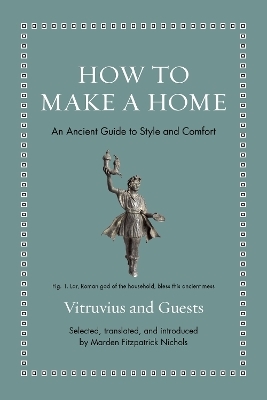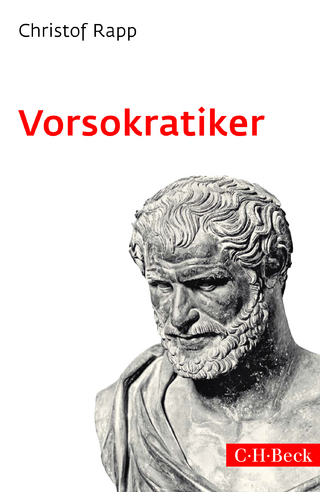
How to Make a Home
An Ancient Guide to Style and Comfort
Seiten
2025
Princeton University Press (Verlag)
978-0-691-24912-4 (ISBN)
Princeton University Press (Verlag)
978-0-691-24912-4 (ISBN)
- Noch nicht erschienen (ca. Juli 2025)
- Versandkostenfrei innerhalb Deutschlands
- Auch auf Rechnung
- Verfügbarkeit in der Filiale vor Ort prüfen
- Artikel merken
An entertaining and enlightening collection of ancient Roman writings about home design and decoration
The idea that our homes can communicate professional as well as personal identities may seem as new as the work-from-home revolution. But it was second nature to the ancient Romans, for whom the home was in many ways the center of public and private life. Roman authors saw infinite practical and symbolic value in houses, and they have much to say about them. How to Make a Home presents some of the best Roman writings on houses—from buying and selling to designing and decorating.
Edited and elegantly translated by Marden Fitzpatrick Nichols, How to Make a Home gathers selections by Cicero, Vitruvius, Seneca, and others, with the original Latin or Greek on facing pages. These writings reveal the pleasures and pitfalls of the Roman practice of making one’s home a cornerstone of self-expression. While the ideal home enshrined Roman virtues and could make a career, lavish building projects could lead to financial ruin and moral condemnation. These authors memorably describe such travails as deceptive staging, decorators run amok, know-it-all owners, unsupervised contractors, and buyer’s remorse. Along the way, they also explain why simplicity is bliss, privacy is for nobodies, a neglected house is a sign of a neglected soul, and much more.
A unique and charming introduction to Roman domestic architecture and its cultural significance, How to Make a Home reveals that the obsession with house and home has a long and fascinating history.
The idea that our homes can communicate professional as well as personal identities may seem as new as the work-from-home revolution. But it was second nature to the ancient Romans, for whom the home was in many ways the center of public and private life. Roman authors saw infinite practical and symbolic value in houses, and they have much to say about them. How to Make a Home presents some of the best Roman writings on houses—from buying and selling to designing and decorating.
Edited and elegantly translated by Marden Fitzpatrick Nichols, How to Make a Home gathers selections by Cicero, Vitruvius, Seneca, and others, with the original Latin or Greek on facing pages. These writings reveal the pleasures and pitfalls of the Roman practice of making one’s home a cornerstone of self-expression. While the ideal home enshrined Roman virtues and could make a career, lavish building projects could lead to financial ruin and moral condemnation. These authors memorably describe such travails as deceptive staging, decorators run amok, know-it-all owners, unsupervised contractors, and buyer’s remorse. Along the way, they also explain why simplicity is bliss, privacy is for nobodies, a neglected house is a sign of a neglected soul, and much more.
A unique and charming introduction to Roman domestic architecture and its cultural significance, How to Make a Home reveals that the obsession with house and home has a long and fascinating history.
Marden Fitzpatrick Nichols is Provost’s Distinguished Associate Professor and Chair of Classics at Georgetown University and the author of Author and Audience in Vitruvius’ “De architectura.”
| Erscheint lt. Verlag | 15.7.2025 |
|---|---|
| Reihe/Serie | Ancient Wisdom for Modern Readers |
| Übersetzer | Marden Ftizpatrick Nichols |
| Zusatzinfo | 3 b/w illus. |
| Verlagsort | New Jersey |
| Sprache | englisch |
| Maße | 114 x 171 mm |
| Themenwelt | Geisteswissenschaften ► Philosophie ► Philosophie Altertum / Antike |
| Technik ► Architektur | |
| ISBN-10 | 0-691-24912-1 / 0691249121 |
| ISBN-13 | 978-0-691-24912-4 / 9780691249124 |
| Zustand | Neuware |
| Informationen gemäß Produktsicherheitsverordnung (GPSR) | |
| Haben Sie eine Frage zum Produkt? |
Mehr entdecken
aus dem Bereich
aus dem Bereich


